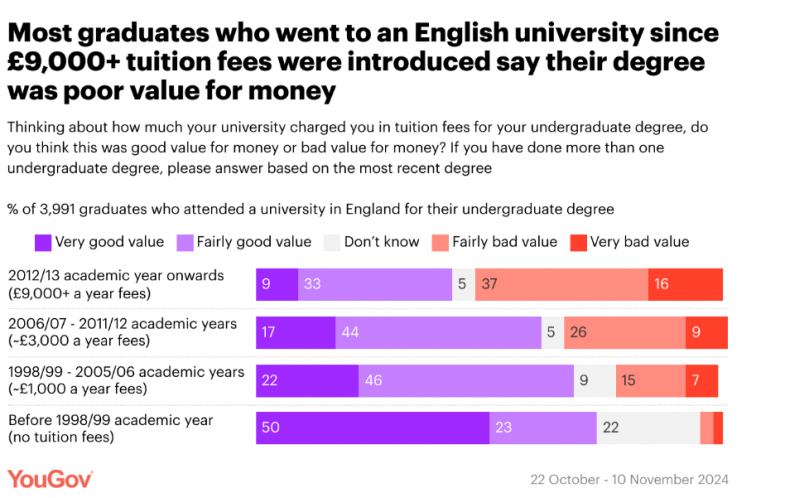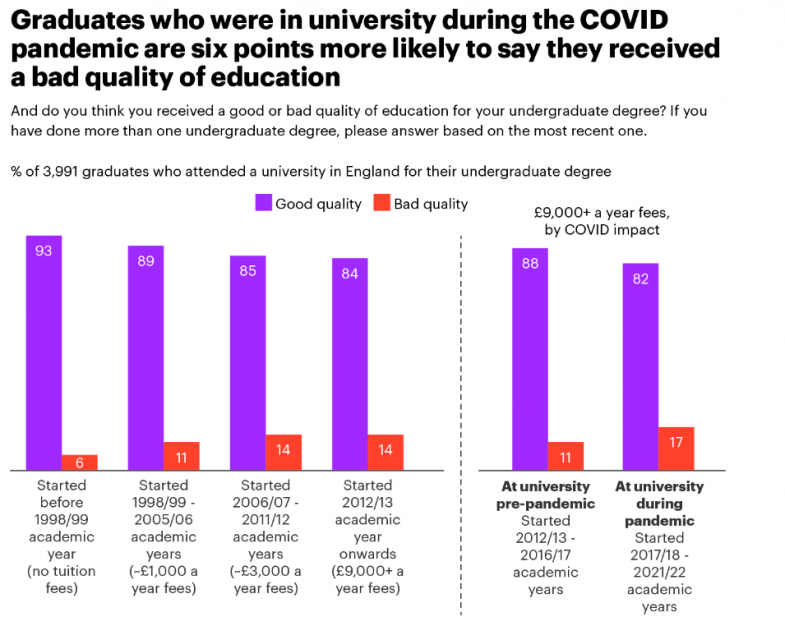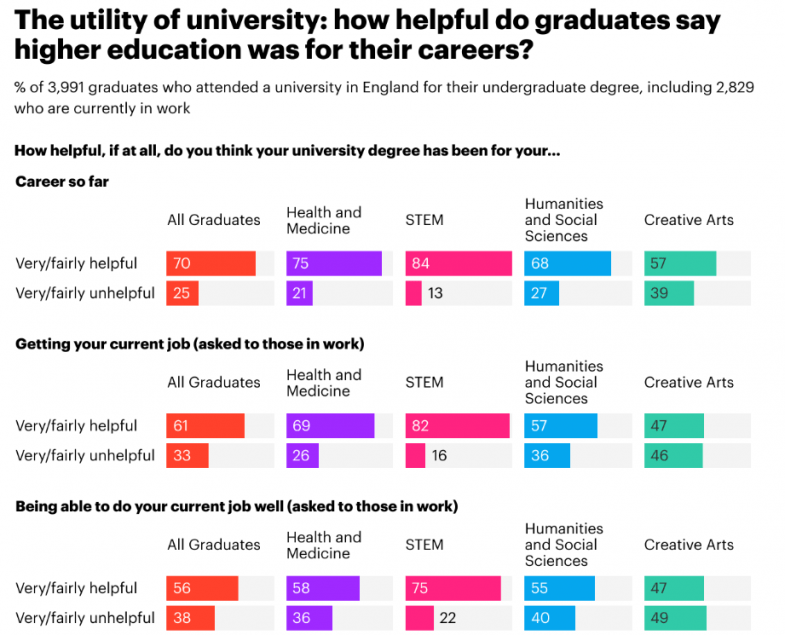Most graduates who started at an English university after tuition fees passed £9,000 believe that they received poor value for money, new polling suggests.
According to a YouGov survey of nearly 4,000 graduates, 53 per cent of those who began their degree from the 2012-13 academic year onwards think they received poor value for their tuition fees, compared with 42 per cent who rated their experience as good value, with 5 per cent undecided.
That compares with the 35 per cent of those charged £3,000 a year – between 2006 and 2012 – who rated their higher education expenditure as poor value for money, with 22 per cent of those charged £1,000 a year – between 1999 and 2005 – assessing their tuition fee spend as bad value for money.
The study was published on 7 January, following the November announcement that tuition fees would rise in line with inflation to £9,535 this autumn.

On the quality of education received for their degree, scores remained high regardless of how much was charged in tuition fees. Eighty-four per cent of graduates charged £9,000 a year or more rated the quality of their university education as good – broadly the same level as those charged £3,000 a year (85 per cent) or £1,000 a year (89 per cent).
Only 14 per cent of the £9,000-a-year cohort rated their university education as bad quality – the same level as for those charged £3,000 a year, with the figure at 11 per cent for those who paid £1,000 a year.
This figure rose somewhat for those at university during the Covid pandemic, of whom 17 per cent were dissatisfied with the quality of education received.

On the question of whether higher education had led to a higher salary, 39 per cent feel their degree is paying off financially, while 35 per cent say they are earning about the same as they would have done had they not gone to university. Some 12 per cent feel they are financially worse off as a result of their degree.
That figure was lowest among those who studied creative arts subjects, with only 21 per cent claiming they are better off financially as a result of their degree – compared with 50 per cent who did STEM degrees, 51 per cent who took health and medicine courses and 35 per cent who took humanities or social science courses.
Financial expectations also vary by subject studied, with 63 per cent of graduates who studied STEM courses estimating that they will earn more across their career as a result of their degree – a number that fell to 50 per cent for those who did humanities or social science subjects and 34 per cent for those who did creative arts courses.

Nonetheless, the vast majority of graduates feel that their degree has helped them in their career, with health and medicine graduates, and those who studied STEM subjects, most positive about its impact (84 per cent and 75 per centre, respectively, feel it has been helpful) with the figure standing at 68 per cent for those who studied humanities and social science and 57 per cent for those who did creative arts.
Register to continue
Why register?
- Registration is free and only takes a moment
- Once registered, you can read 3 articles a month
- Sign up for our newsletter
Subscribe
Or subscribe for unlimited access to:
- Unlimited access to news, views, insights & reviews
- Digital editions
- Digital access to THE’s university and college rankings analysis
Already registered or a current subscriber?








